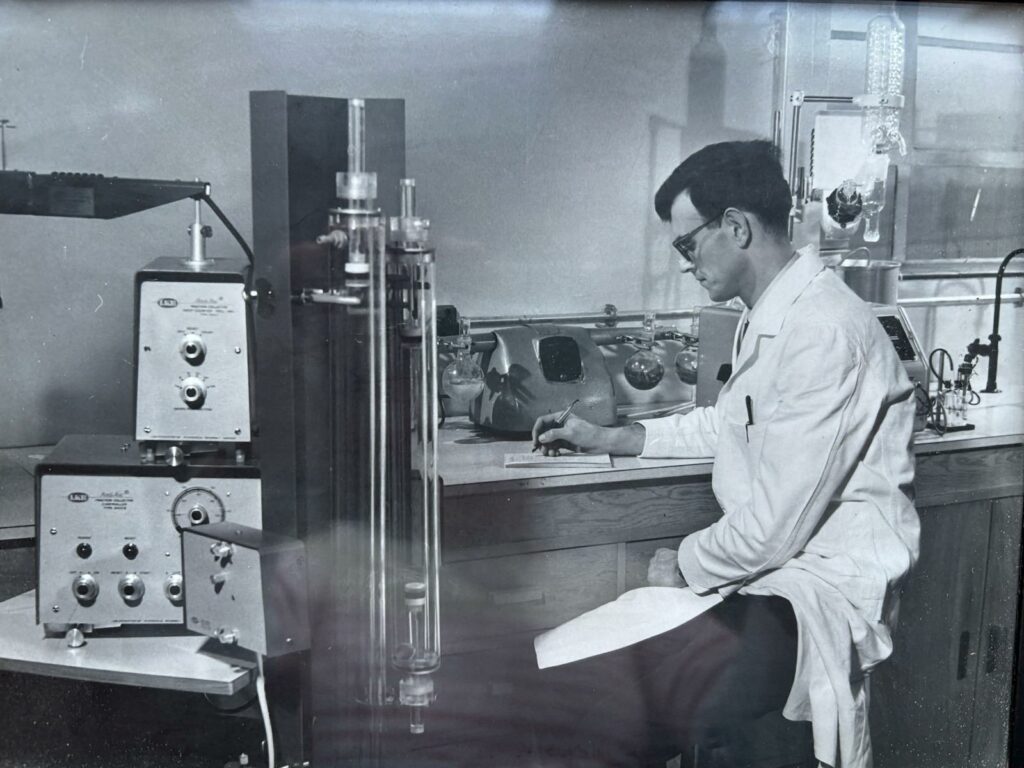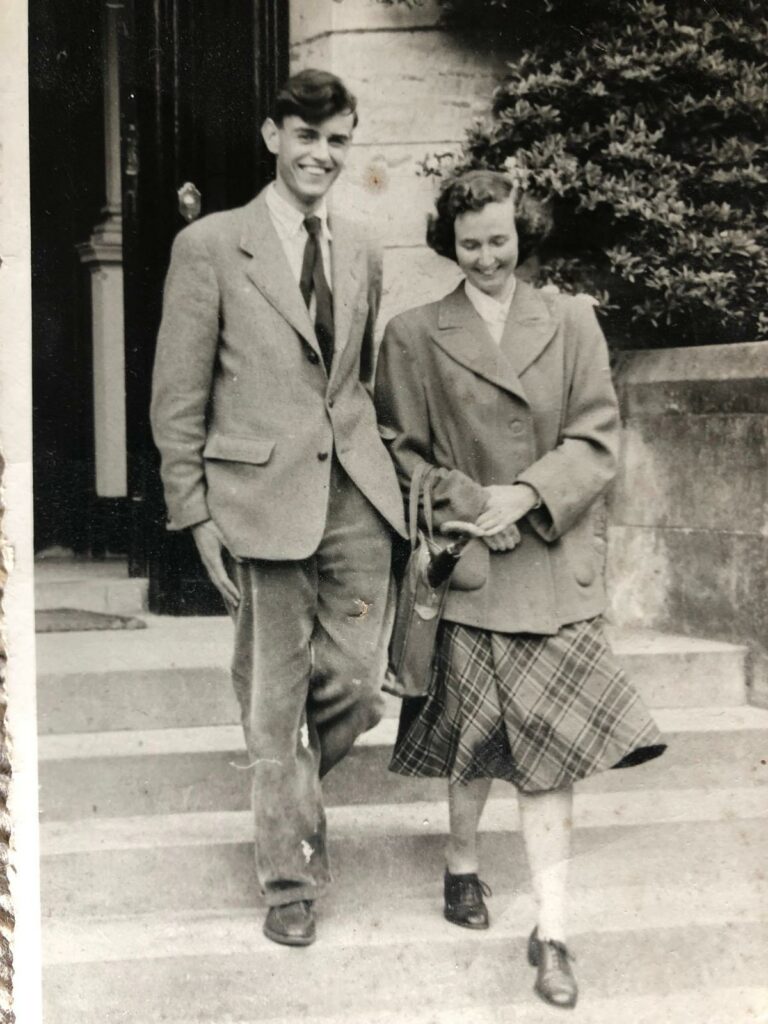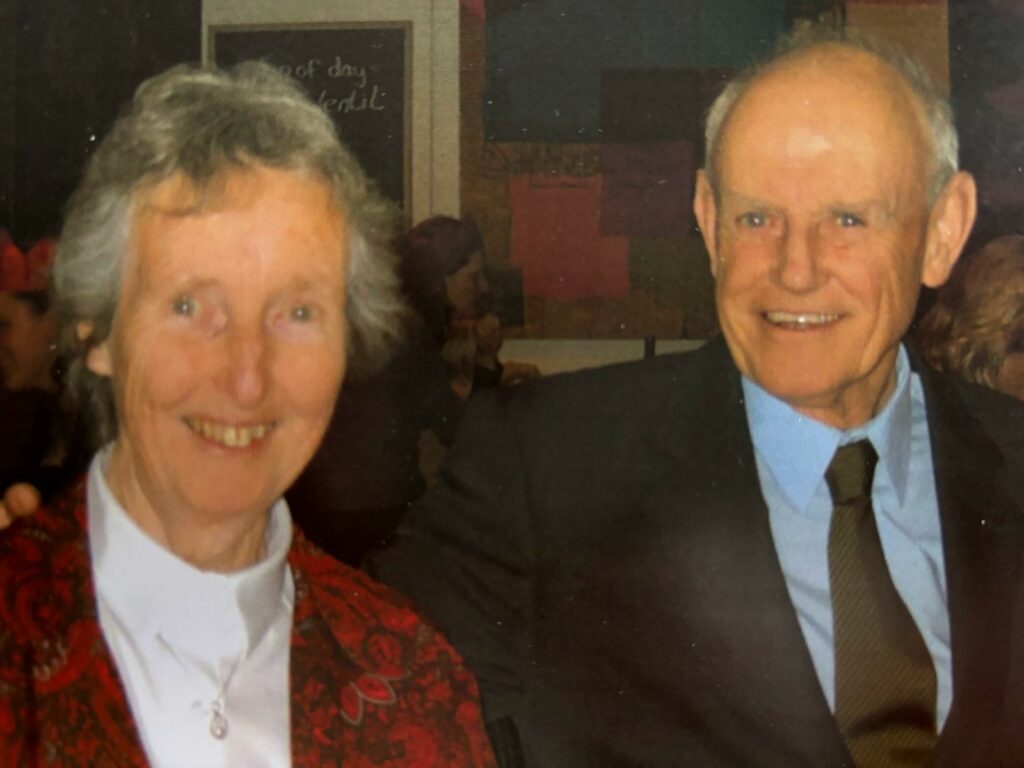
The University of Manchester is deeply saddened to announce the passing of Dr Frank Sinclair Steven on 19th November 2024, at the age of 91. His impressive career had a lasting impact both at the University and in the wider scientific community, and his contributions will be remembered for years to come.
Dr Steven’s journey at Manchester began in 1965 when he joined the Lapworth Laboratory alongside Dr David Jackson to establish the Connective Tissue Group. His academic career at Manchester spanned nearly three decades, during which he made significant contributions to the understanding of connective tissues, enzyme structure, and function.
His research on enzyme kinetics was ground breaking. Frank developed innovative methods using fluorescent substrates to study enzyme active site reversible activation, which advanced the understanding of how enzymes function at a molecular level. He also worked on the use of fluorescent markers to differentiate cancerous cells from healthy ones, a concept that would later prove invaluable in clinical settings, particularly in identifying and targeting prostate cancer cells.

Throughout his career, Frank authored over 230 peer-reviewed papers, many of which were published in high-impact journals. His research not only contributed to the scientific community’s understanding of biochemistry but also helped pave the way for new diagnostic and therapeutic approaches in cancer treatment. His work was widely recognised, and his academic achievements were marked by his award of a Doctor of Science (DSc) from the University of Manchester at the age of 36.

As a teacher, Frank’s influence was just as profound. For nearly three decades, he shared his love of biochemistry with generations of medical students at Manchester. He was known for going above and beyond to support students, particularly those who found the subject challenging. Frank understood struggle – having overcome his own academic hurdles due to undiagnosed dyslexia in his early life – and he was passionate about giving his students the second chance they needed to succeed.
Throughout his career, Frank’s commitment to the University extended far beyond the lecture hall. He was dedicated to advancing scientific knowledge and supporting students, both academically and financially. After retiring in 1993, Frank continued to support the University, contributing regularly to student support funds. His generosity ensured that bright, talented students could continue their studies, regardless of financial barriers.
Away from his work, Frank was an avid birdwatcher, spending countless hours in the Peak District with his beloved wife, Inger, and their family.
Dr Frank Steven’s legacy at the University of Manchester is one of scientific achievement, educational dedication, and a commitment to supporting others. His contributions to the field of biochemistry and to the lives of his students will continue to be felt for generations to come. We will remember Frank not only for his academic brilliance but for the generosity and kindness he showed to all those around him.

